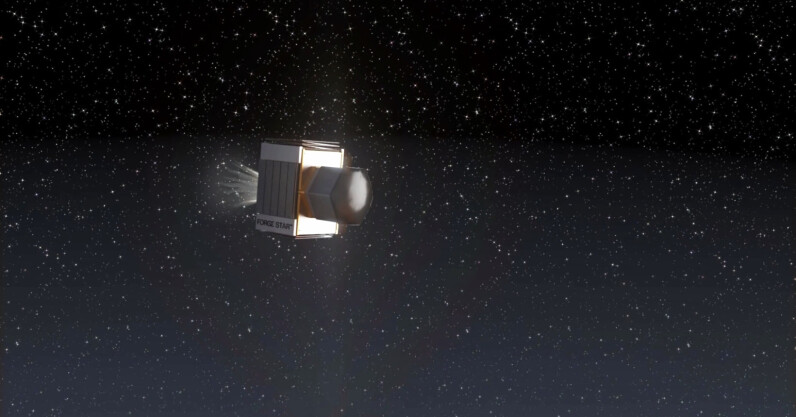
Welsh startup Space Forge has raised $30mn to advance its first commercial in-orbit manufacturing satellite, ForgeStar-2. The NATO Innovation Fund led the funding round, the largest Series A financing in UK space tech history.
Space Forge’s first demonstrator — the ForgeStar-1 — is set to launch from the US on a SpaceX rocket this year. The oven-sized satellite will then harness the conditions of space to produce “supermaterials” that are impossible to make on Earth.
Joshua Western, Space Forge’s CEO and co-founder, compared the technology to a sourdough starter — a small but potent base for growing something much bigger.
“Our satellites utilise the zero-gravity, ultra-cold, vacuum environment of space to produce tiny crystals of a higher quality than could ever be made otherwise,” Western explained.
Once returned to Earth, the crystal “seeds” can be used to grow larger crystals that form the basis of ultra-efficient computer chips, which could power everything from data centres to telecoms networks. Space Forge says these semiconductors could halve the time it takes to charge an EV. The technology could also be used to make new metal alloys or pharmaceutical drugs.
At least, that’s the long-term vision — but Space Forge hasn’t yet made its materials in space, and ForgeStar-1 won’t be coming back to Earth. Instead, the satellite will be intentionally burned up in the atmosphere.
Sensors on board, however, will enable the team to measure whether the crystal-forming process was a success. The first mission aims to validate the startup’s key technologies in preparation for the launch of ForgeStar-2.
Designed to be reusable, ForgeStar-2 will be equipped with a heat shield called Griffon that will protect its precious payload from the intense heat and pressure of re-entry. That could enable it to make regular trips to space and deliver new seeds back to labs on Earth.
Space Forge predicts its crystal seeds could be worth up to £45mn ($60mn) per kg, which would easily cover the costs of launch. The company also claims that the power-saving gains of its semiconductors in technologies like EVs will offset the carbon emitted when launching the satellite.
Space Forge will use the fresh funding to accelerate the development of ForgeStar-2. As hinted by NATO’s participation in the round, the company’s technology could also have potential applications in security and defence. It may enhance European security by enabling the production of advanced materials for defence systems and reducing reliance on foreign suppliers for critical components.
Chris O’Connor, partner at NATO Innovation Fund, said Space Forge would advance Europe’s access to space, supply chain independence, and long-term resiliency.
“We look forward to working with the Space Forge team to leverage their technological breakthroughs in order to secure the future of NATO nations,” he said.
The future of tech is a key theme of TNW Conference, which takes place on June 19-20 in Amsterdam. Tickets for the event are now on sale — use the code TNWXMEDIA2025 at the checkout to get 30%.


